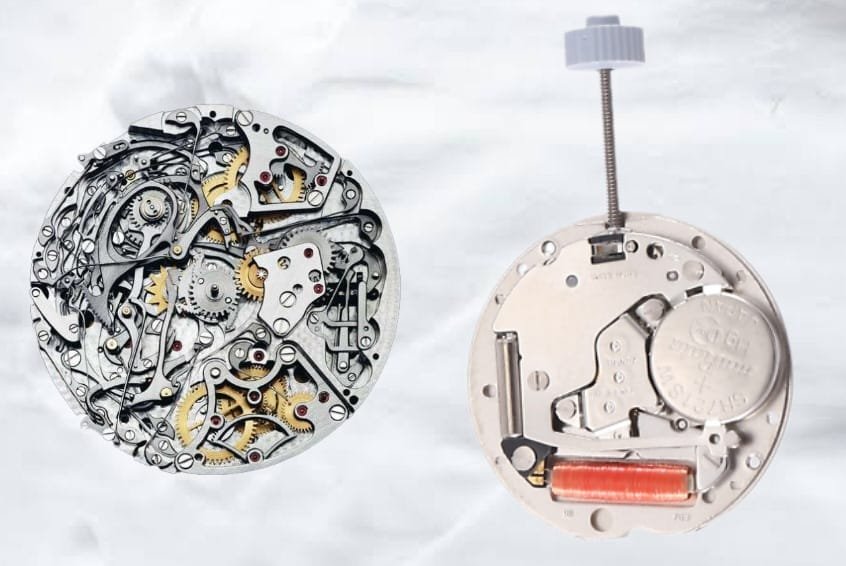The primary difference between automatic and quartz watches

The primary difference between automatic and quartz watches lies in their mechanism for keeping time. Here’s a detailed comparison:
1. Power Source
- Automatic Watch:
- Powered by mechanical movement.
- Contains a mainspring that is wound either manually or by the motion of the wearer’s wrist (via a rotor).
- Does not require a battery.
- Quartz Watch:
- Powered by a small battery.
- Uses a quartz crystal oscillator to regulate time.
- The battery sends an electric current through the quartz crystal, causing it to vibrate at a precise frequency.
2. Accuracy
- Automatic Watch:
- Slightly less accurate than quartz watches.
- Timekeeping can be affected by factors such as temperature, position, and wearer’s activity.
- May lose or gain a few seconds per day.
- Quartz Watch:
- Highly accurate.
- Typically loses or gains only a few seconds per month.

3. Maintenance
- Automatic Watch:
- Requires regular servicing (every 3–5 years) to ensure proper functioning.
- Sensitive to shocks and magnetism.
- Quartz Watch:
- Minimal maintenance; battery replacement is needed every 1–5 years.
- More resistant to shocks and magnetism.
4. Movement Complexity
- Automatic Watch:
- Contains intricate, purely mechanical parts such as gears, springs, and a balance wheel.
- Often admired for craftsmanship and engineering.
- Quartz Watch:
- Simpler mechanism with fewer moving parts.
- Focuses on efficiency and reliability.
5. Design and Aesthetic
- Automatic Watch:
- Frequently associated with luxury and tradition.
- Many models feature a “skeleton” design to showcase the internal mechanics.
- Quartz Watch:
- Typically more modern and utilitarian.
- Available in a wider range of affordable designs.
6. Price
- Automatic Watch:
- Generally more expensive due to the complexity and craftsmanship involved.
- Quartz Watch:
- More affordable and mass-produced.
7. User Interaction
- Automatic Watch:
- Needs to be worn regularly to keep running (or manually wound if left unused).
- Quartz Watch:
- Continues to run as long as the battery has charge.
Conclusion
- Choose an automatic watch if you appreciate traditional craftsmanship, mechanical precision, and a sense of heritage.
- Choose a quartz watch if you prioritize accuracy, low maintenance, and cost-effectiveness.
